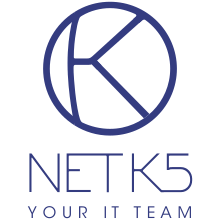
There are 7 Companies in China
that provide Hosting and Cloud Services!
China’s tech sector has grown significantly in the past two decades and is making a challenge for the US to keep its long-standing position of the world leader. Companies like Huawei, WeChat, Baidu, Tencent, Qualcomm among others consolidate the country’s efforts in becoming the next-generation leader in tech worldwide.
Discover Top IT Companies in China specialized in Hosting and Cloud and other related services. Find the best IT service providers for your projects.
Entrepreneurs often struggle to differentiate between cloud and hosted services, which may seem similar but differ in processes. Understanding these differences can help choose the right for your business. Pick the right home for your website involves considering technical aspects, reliability, cost, and customer support and other factors.
There are more than 330,000 web hosting providers all around the world, and this number is expected to grow as the Internet expands. Even with the fierce competition, new providers continue to enter the market. At the same time, data reveals that approximately 60% of all corporate data is now stored in the cloud. It has also witnessed a 10% increase compared to the previous year, 2021.
Handpicked companies • No obligation to hire • 100% risk-free
Featured Companies in China
This month, the following Hosting and Cloud companies managed to provide an outstanding service and support. It's worth taking a look.
Award-winning web agency in Shanghai, specializing in localization, cross-cultural strategies, design, development, and reliable support.
Your bilingual IT partner in China: we provide IT solutions to international businesses operating in China.
IT Support in Shanghai and China. English Speaking IT Experts. We help Multi-national firms and expats solve diverse IT issues in China.
Explore Top Hosting and Cloud Companies in China
Techgropse is a leading Mobile App and Web Development Company, dedicated to turning innovative ideas into remarkable digital solutions. 500+ Clients
Founded in 2022 and headquartered in Foshan, Guangdong, China, Wisray Studio is a software development company serving the world.
RSM Stone Forest provides a comprehensive suite of business solutions to support your growth in Singapore and globally.
Filter Hosting and Cloud Companies in China by Cities
Find the right tech company near you or from a specific city. Some of the best companies might be located in smaller cities.
Find more Hosting and Cloud companies around the world
TechBehemoths is the world's most advanced and user-friendly platform to match IT Companies with real clients without hustle.
The Chinese Tech Industry: Companies and IT Industry Overview
China’s tech sector has grown significantly in the past two decades and is posing a challenge for the US to keep its long-standing position as the world leader. Companies like Huawei, WeChat, Baidu, Tencent, Qualcomm, among others, consolidate the country’s efforts in becoming the next-generation leader in tech worldwide. Lately, China and the US are battling for the 5G technology leadership, and the competition leads to an economic war that involves sanctions and restrictions for companies on both sides.
Mainly, there are three pillars of China’s tech sector growth: venture capital, innovation, and a distinct entrepreneurial culture. All these, with governmental support, managed to transform China from a mass manufacturer into a tech giant.
At the same time, Alessandro Cormio from Naturality states that China has a rapidly growing market for IT products and services, with a large and increasingly tech-savvy population. The Chinese government has invested heavily in developing its own tech industry, which has led to a vibrant and innovative tech ecosystem. However, there are also significant challenges. Chinese consumers have started to shift their preferences towards domestic brands, making it more difficult for foreign companies to gain a foothold in the market. In addition, habits and the market in general are very different to handle and develop when compared to the West. I always suggest NEVER trying to enter this market with the same strategy and approach as Western countries.
Why You Should Work With Chinese It Companies
As mentioned above, one of the three pillars of China’s tech sector is distinct entrepreneurship. In China, IT companies and businesses in general work differently from the traditional Western style. It’s about social digitalization, where companies don’t need direct human interaction anymore - everything can be done remotely. Even though freelancing is a very well-known practice in the West, Chinese IT companies use corporate freelancing, allowing professionals to focus on project tasks from different parts of the country.
Chinese companies don’t have any more language barriers when it comes to communication, and project management is at its highest. Tech specialists are doing their job properly and fulfilling the exact requirements and instructions mentioned by clients. Honestly, this is no surprise, since discipline is in the Chinese blood for centuries.
Another reason for working with Chinese IT companies may be an abundant workforce. While European and US markets mainly confront a workforce shortage, it’s not the same for Chinese companies, where tech specialists are struggling to get a place in an IT company.
What Should You Be Aware of When Working With Chinese IT Companies?
On the other hand, the government controls all business processes, especially with foreign clients and investors. As a potential client, you will meet certain bureaucratic barriers that will cut the business’s appetite. The number of papers that need to be signed overlaps several times, and the number of papers you need in Europe and the US. But after having everything done, all will go smoothly.
The prices may vary from region to region and company to company. It depends on how well a region or a company performs on the national level, which still remains the main indicator for Chinese IT companies in terms of notoriety. That is a good idea to be aware of what regions are likely to provide better services, and in which field.
To this answer, Alessandro Cormio adds that due to the very different market culture and habits of China, to better enter the market, companies need to be aware of how differently things work in China.
How Reliable Are Chinese IT Companies
The same thing we could say about reliability. Since the country has more than 15,000 IT companies, it wouldn’t be fair to rate all companies under the same figures. Companies located in more developed regions and cities perform better, are more reliable, and have a higher credibility rate, while other companies from less-developed regions and cities are nameless, and don’t have enough experience to rate their experience.
On the other hand, in China, a nameless company can become a world brand overnight. It depends on the product they are working on and the technologies used. Since innovation is the second Chinese tech pillar, any company can become famous, rich, or both if it uses the right combination.
How Does the Chinese IT Sector Relate to the Neighboring Countries?
The Chinese tech sector outnumbers all neighboring countries. However, in terms of general performance, it competes with the South Korean IT sector and the Japanese one. The internal market is enough for Chinese companies to grow and innovate, so, presumably, there is no big need for exporting IT services, like in the case of Korean and Japanese companies. However, contacting foreign entities empowers and stimulates the innovation processes in a country.
Chinese Business Environment: Complex But Rapidly Growing
China has a complex BUT rapidly evolving business environment. On one hand, it is the world's second-largest economy (projected to be NO. 1 in some years) with a rapidly growing consumer market. On the other hand, because of the significant state ownership and control, it turns out to be a challenging legal and regulatory environment. Working in marketing for Chinese companies looking to go overseas, it's also interesting to feel and understand the complexity and huge potential, on a scale, that this market has. China's rapid economic growth and expanding middle class offer significant opportunities for companies and talents willing to invest the time and resources to establish a strong presence in the market.
At the same time, the difficulty of opening a new IT company in China is appreciated as quite open, with wide possibilities, but it is getting more and more challenging.
How Does the Chinese Government Help the IT Sector?
While it's difficult to understand all subtleties and Chinese laws all of a sudden, Alessandro Cormio, the founder of Naturality Digital - a reputable IT company with offices in China, says that there are three main directions on this topic:
- Investment in research and development: AI and 5G on top of all.
- Support for entrepreneurship: Plenty of initiatives to support entrepreneurship and innovation, including tax incentives, funding for startups, and the establishment of innovation hubs and incubators.
- Encouragement of investment: establishment of special economic zones and other incentives to attract domestic and foreign companies.
Shenzhen and Shanghai - The Chinese Heaven for IT Companies
Shenzhen has been the fastest-growing city in the world in the last few years, and it keeps pushing forward. At the same time, Shanghai is the most populous and international city in China.
Alessandro considers that both should definitely be considered among the top cities in the world for IT development.
About the Chinese Local Talent Pool
Not too easy to answer this question. From my point of view, there's still a lack of people with high skills in certain things. Too many tend to specialize too much and follow a specific standard, not beneficial to flexibility and creativity.
This article was created together with Alessandro Cormio, the Co-Founder of Naturality Digital, which is one of the leading digital marketing agencies with offices in Italy, Switzerland, and China.
What is Hosting and Cloud and what are its benefits for your projects?
Entrepreneurs often struggle to differentiate between cloud and hosted services, which may seem similar but differ in processes. Understanding these differences can help choose the right for your business. Pick the right home for your website involves considering technical aspects, reliability, cost, and customer support and other factors.
There are more than 330,000 web hosting providers all around the world, and this number is expected to grow as the Internet expands. Even with the fierce competition, new providers continue to enter the market.
At the same time, data reveals that approximately 60% of all corporate data is now stored in the cloud. It has also witnessed a 10% increase compared to the previous year, 2021.
Cloud Services
Cloud services are computing services provided by third-party hosts through the internet and on-demand. They allow customers to access and utilize remote computing resources effortlessly. There are three main categories of cloud: Software as a service (SaaS), Platform as a service (PaaS), Infrastructure as a service (IaaS).
Benefits of Using Cloud-Based Services
Cloud services offer several advantages that are not available with hosted solutions:
-
IT Optimization: With cloud services, the provider is responsible for building and maintaining all the hardware, so your IT department doesn't have to manage servers or install and update software on individual computers. Additionally, the provider is responsible for ensuring security and resolving any problems that might come up.
-
Budget-friendly approach: Cloud services offer a cost-efficient approach where you only pay for what you use. There is no need to invest in hardware or purchase software licences that may end up being unused by your team.
-
Business system integration: To integrate various third-party cloud solutions, you can streamline workflows and enhance team collaboration and productivity. For instance integrating your cloud communications platform with a CRM. Doing so ensures employees have access to customer information before they answer incoming calls and automatically logs all calls into the CRM.
-
Increase agility and scalability: Cloud services let you make changes in just a few clicks, whether you need to shift workflows, add new features and functionality, or change the number of users.
-
Support AI, predictive analytics, and IoT: With your data in the cloud, you can easily apply these advanced technologies to improve efficiency, gain new insights, and future-proof your business.
-
Support remote workforces: The workforce can access cloud services anytime, anywhere, using any device, with just an internet connection and login credentials.
Hosting Services
Hosted services, much like cloud-based solutions, are managed by a third-party provider and accessed through the internet. With hosted solutions, the provider owns and maintains physical servers in a private location rather than relying on a public cloud. This allows the service to be accessed online without the need for installing hardware or software. Users typically access it through a virtual private network or remote desktop.
Benefits of Hosting Services
Hosted services offer some of the same advantages as cloud solution, including:
-
Remote access and the ability to integrate with certain other cloud solutions. Because the software and hardware are maintained by the provider, there's also less for IT to manage than with traditional computing solutions (but typically more than with cloud solutions).
-
Offers greater customization options compared to cloud services, depending on the setup and service agreement.
-
Provide more control over security protocols, which is particularly beneficial for companies operating in highly regulated industries.
To Sum Up
Cloud services are a more cost-effective option compared to hosting services. They are easier to set up, manage, and maintain. Although hosting services offer more control, they require additional IT work and often come at a higher price. However, it's important to analyze your specific business requirements before deciding on a hosting type. At the moment Techehemoths has almost 800 Hosting & Cloud service providers.
Take a look at their profiles and feel free to contact them, the smart filters will also help you, Moreover, you can submit your project and our team will hand-pick and send you the best matching service providers, and you will get free quotes in about 1-hour. Also, if you want to learn more about cloud and hosting services, check out our blog for additional information.






